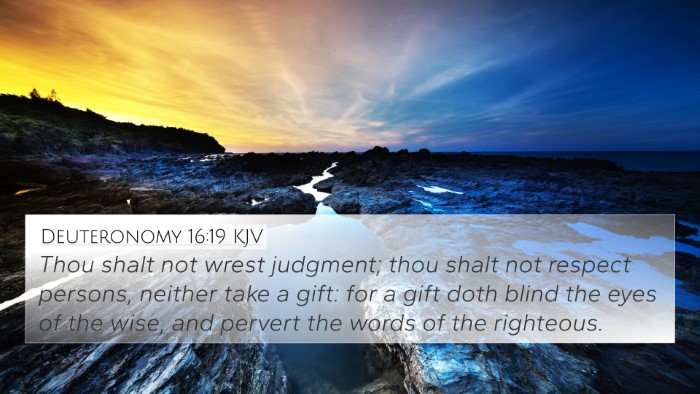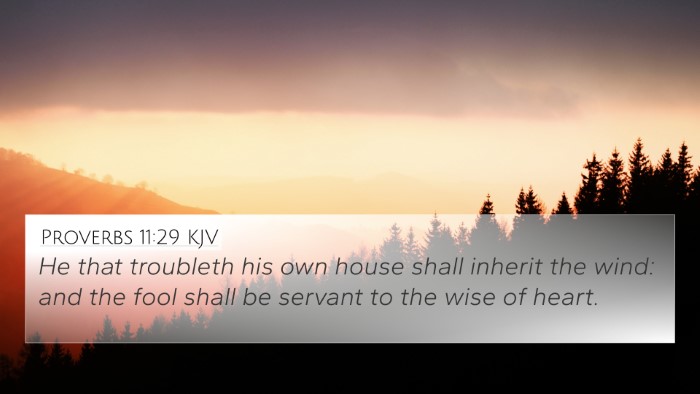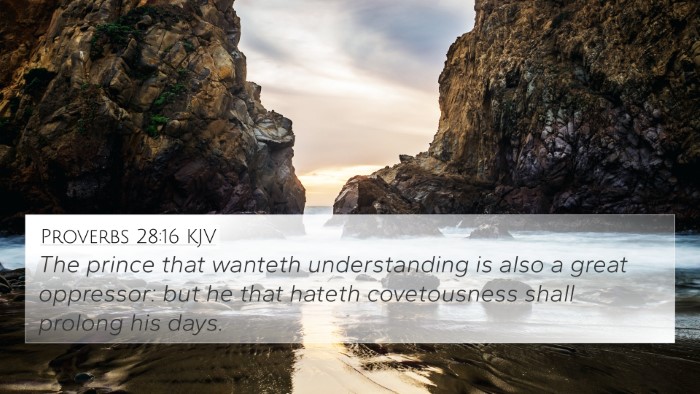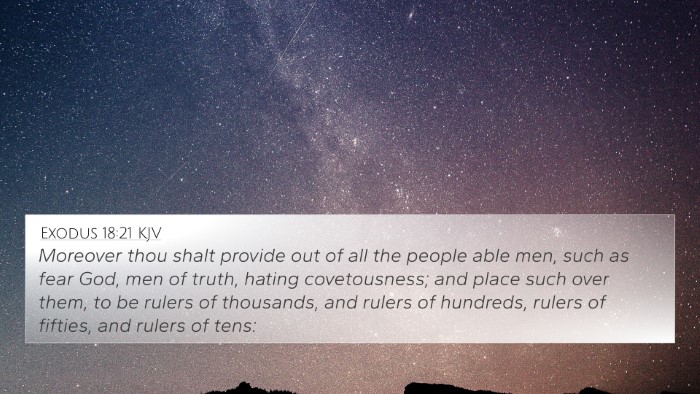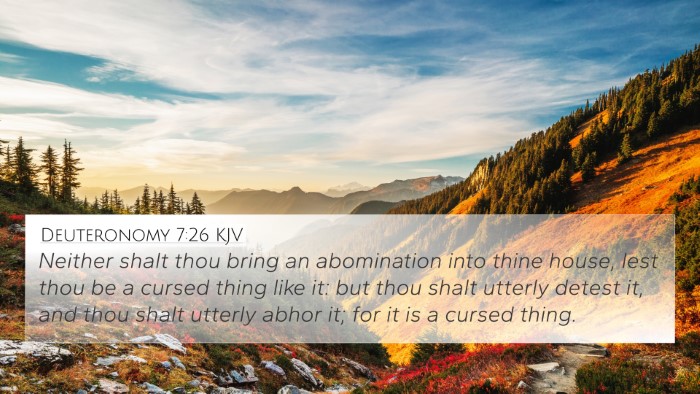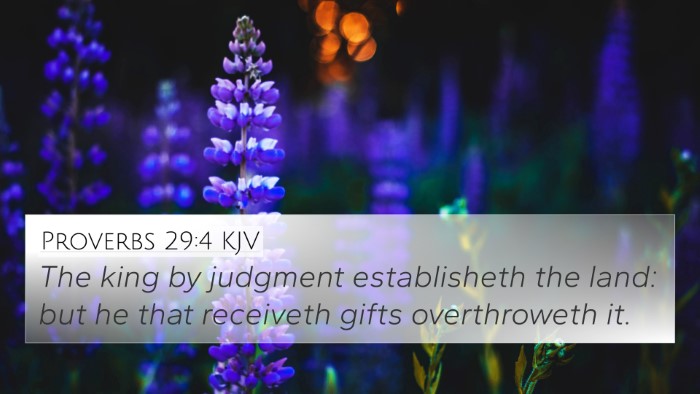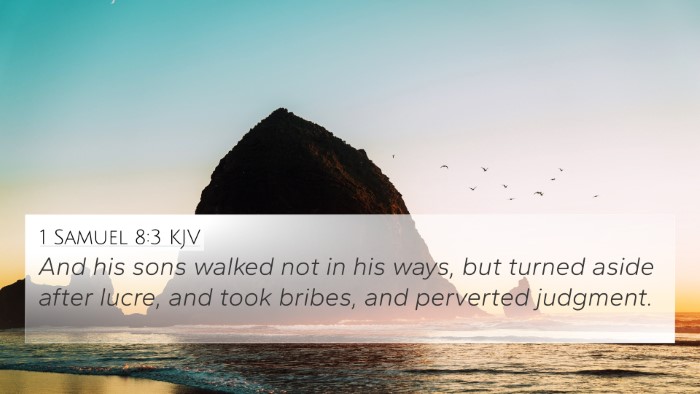Understanding Proverbs 15:27
Proverbs 15:27: "He that is greedy of gain troubleth his own house; but he that hateth gifts shall live."
Summary of Verse Meaning
This verse from Proverbs emphasizes the dangers of greed and its potential consequences on one's household. It contrasts the fate of the greedy individual with that of the righteous who turn away from gifts or dishonest gain. Various public domain commentaries provide rich insights into the deeper meanings behind this verse.
Lessons from Public Domain Commentaries
-
Matthew Henry:
Henry notes that greed can lead to chaos and instability within a person's family. He suggests that an insatiable desire for wealth causes personal and familial strife, as it prioritizes material gain over moral and spiritual welfare.
-
Albert Barnes:
Barnes highlights that the greedy person jeopardizes their happiness and family peace. The verse serves as a warning that the pursuit of gain through unscrupulous means will ultimately harm those one is supposed to care for.
-
Adam Clarke:
Clarke elaborates on the idea that rejecting corrupt gifts symbolizes integrity. He posits that those who live by ethical standards, rejecting bribes and corruption, are more likely to enjoy a prosperous life spiritually and materially.
Connections to Other Bible Verses
This verse can be cross-referenced with several others that emphasize the themes of greed, integrity, and the consequences of one's actions:
- Proverbs 11:28 - "He that trusteth in his riches shall fall; but the righteous shall flourish as a branch."
- 1 Timothy 6:10 - "For the love of money is the root of all evil: which while some coveted after, they have erred from the faith, and pierced themselves through with many sorrows."
- Luke 12:15 - "And he said unto them, Take heed, and beware of covetousness: for a man's life consisteth not in the abundance of the things which he possesseth."
- Proverbs 21:6 - "The getting of treasures by a lying tongue is a vanity tossed to and fro of them that seek death."
- Ecclesiastes 5:10 - "He that loveth silver shall not be satisfied with silver; nor he that loveth abundance with increase: this is also vanity."
- Matthew 6:24 - "No man can serve two masters: for either he will hate the one, and love the other; or else he will hold to the one, and despise the other. Ye cannot serve God and mammon."
- James 5:1-3 - "Go to now, ye rich men, weep and howl for your miseries that shall come upon you. Your riches are corrupted, and your garments are moth-eaten."
Thematic Bible Verse Connections
In exploring the biblical theme of greed versus integrity, Proverbs 15:27 serves as a key verse among many, linking various scriptural discussions about wealth, morality, and the true source of life’s fulfillment:
- The concept of materialism versus spiritual wealth.
- The impact of ethical living on one's community.
- Contrasting the outcomes of corruption versus righteousness.
Tools for Bible Cross-Referencing
To further analyze Proverbs 15:27 and its connections, employing various tools and methods can be beneficial:
- Bible Concordance: A helpful resource for locating keywords and themes throughout the Bible.
- Bible Cross-Reference Guide: Provides structured connections for comparative studies of verses.
- Bible Reference Resources: Different resources can help navigate complex biblical themes and ideas.
Comparative Bible Verse Analysis
Engaging in comparative studies allows a deeper understanding of how various scriptures interact with Proverbs 15:27. Consider examining:
- The relationship between Old Testament teachings on wealth and New Testament admonitions against greed.
- Common threads between the teachings of Jesus and the wisdom literature of Proverbs.
Literary and Structural Analysis of Proverbs 15:27
The structure of Proverbs uses metaphoric language that enhances its moral teachings. The parallel construction of the verse serves to juxtapose the fates of the greedy and the righteous, allowing for a more impactful realization of the consequences inherent in each choice.
Conclusion: The Lifelong Impact of Righteousness
Ultimately, Proverbs 15:27 highlights a fundamental truth woven throughout scripture—the importance of integrity and moral character over the fleeting allure of material gain. By following the wisdom encapsulated in this verse, one can forge a path to a fulfilling life that benefits not only oneself but also one's community.






